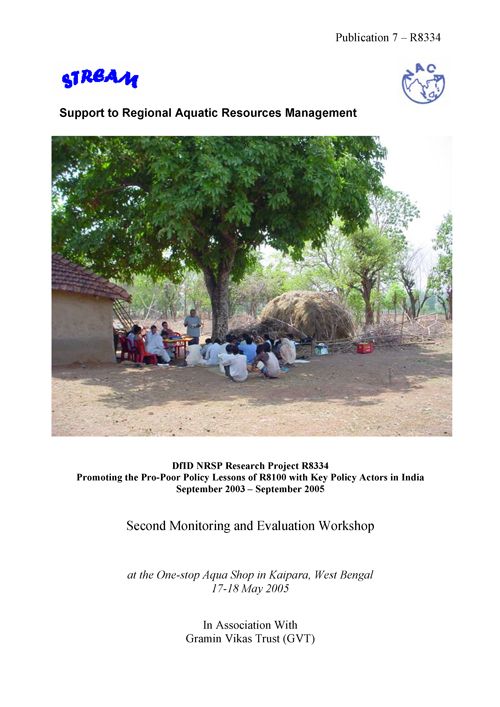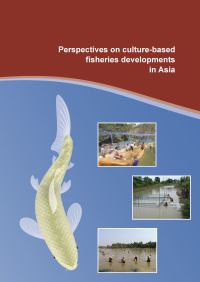Second monitoring and evaluation workshop: Promoting the pro-poor policy lessons of R8100 with key policy actors in India
20 July 2005 | 1234 Downloads | .pdf | 485.55 KB | Gender, India, Livelihoods, gender and social issues
The objective of this project, in taking forward the achievements of the earlier projects, is to develop and promote mechanisms for the delivery of rural services that can reach and benefit marginalized poor men and women (of scheduled tribes and scheduled castes). This workshop in Kaipara Village was meant to “understand the quality of performance in service delivery to poor people through the project M&E system.”
All stakeholder groups represented at the workshop outlined, from their perspective, the activities that had taken place and the stakeholders who had been involved. These were then compared and compiled. With reference made to the activities and stakeholders which had been previously outlined by groups with different experiences of the project’s work, participants were asked to think about and write stories of significant change. They were asked to include a title, a significant change, an explanation of its significance and lessons that could be learned from this.
The significant change stories were written in Bengali by nine of the participants, of whom seven read theirs out during the workshop itself. STREAM colleagues asked questions about the particulars of the stories, especially those which related to how people perceived the changes they expressed. It became apparent as we listened to the significant change stories that – in addition to responding to the four-part question structure – the storytellers were also speaking as if in response to a question like What do people in the village talk about? and that this might also be a useful way of asking about changes in people’s lives and livelihoods.
Once the significant change stories had been told, we talked about the other side of the monitoring and evaluation process using Objectively Verifiable Indicators (OVIs). As a summary of how the various sessions of the workshop fit into the M&E System, participants were informed about how information about activities and stakeholders – and changes to these – formed the first and second levels of the system. In the third level, understandings of such information and changes would allow for the identification of outcomes and impacts among stakeholders, and this would in turn lead to opportunities for learning (level four) about what the project had achieved and about what needed to be modified as a result of what had been learned.
We discussed how the roles of men and women had changed, with increases in education and literacy especially among women, with greater financial independence for women, greater sharing of the outcomes of meetings with women, and increased attendance at meetings with everyone having more opportunity to use their talents to everyone’s benefit.
Participants were informed of how the various sessions of the workshop fit into the M&E System, and there was an explanation about planning and indicators, which complement significant change stories for learning from what we do.
Several follow-up actions were agreed, including holding a meeting to assess the lessons we have learned, developing a Monitoring and Evaluation Learning Report with actions that should follow from that learning, sharing that at a project workshop in Bhubaneswar in August, and seeking ways to continue the relationships which have developed between STREAM and the people in Kaipara and Jabarrah.
Creative Commons Attribution.

